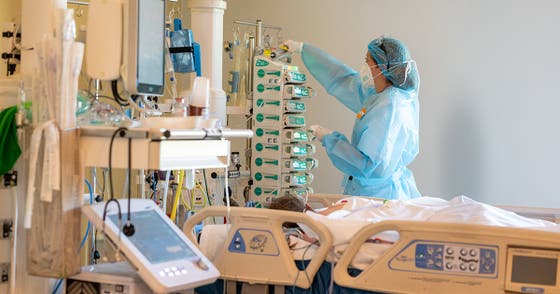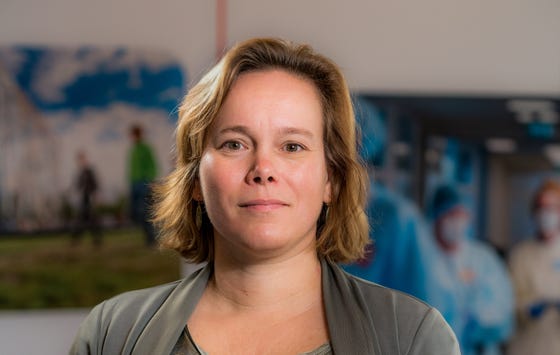Study of new treatment for severe influenza pneumonia

Of every five patients admitted to the intensive care unit (ICU) with a severe pneumonia caused by influenza, one will not survive. To reduce this relatively high mortality risk, Dutch researchers lead by University Medical Center Utrecht will investigate drugs that were previously successful in treating patients with severe Covid-19 entering the ICU, now also in ICU patients with severe pneumonia due to influenza. Dutch funding agency ZonMw has provided a grant of more than €2.1 million for this study.
On average, nearly 900 patients with severe viral pneumonia such as influenza (flu) are admitted to the ICU each year in the Netherlands. Of every five of these patients, one will not survive. The inflammatory response that occurs is similar to the so-called ‘hyperinflammation’ response that was observed in critically ill Covid-19 patients. Although influenza and COVID-19 are different diseases, the clinical symptoms of the sickest patients - those who end up at the ICU - are similar. Because there is no proven effective treatment for severe influenza, researchers wondered if drugs that were successful in treating severe Covid-19 could also work in severe influenza. To answer this important question, ZonMw provided a grant of over €2.1 million for this study to the Dutch IMPRINT consortium.
Goal: reducing mortality
IMPRINT (which stands for 'Immune Modulation Platform for Influenza Treatment') will investigate for the first time if treatment with tocilizumab or baricitinib, both of which have proven effective in critically ill patients with Covid-19, is also efficacious in severe pneumonia caused by influenza. If successful, such treatment could prevent illness and death, stop the spread of the virus and reduce pressure on scarce ICU beds. Also if a new pandemic caused by the influenza virus were to occur, it is important to know whether or not these drugs work.

Lead applicant and coordinator of the IMPRINT study Lennie Derde, MD, PhD (intensivist at UMC Utrecht) explains: “In this study, we are investigating if additional treatment with tocilizumab, or baricitinib, or current standard care gives the best chance of survival in adult patients admitted to the ICU with severe influenza pneumonia. We hope that one or both agents will be better than not using specific immunomodulation.”
Broad collaboration
UMC Utrecht collaborates within the IMPRINT consortium with several academic and peripheral hospitals, the Dutch Intensive Care Association, the Dutch ICU registry, patient representatives through FCIC/IC-CONNECT, and the Ecraid research network to give patients the opportunity to participate in this study over the next 4 years. The IMPRINT study is being conducted in collaboration the international REMAP-CAP study, which has been instrumental in finding effective treatments against the coronavirus. This collaboration will allow the required number of patients to be reached more quickly. The study will be integrated within the Influenza Immune Modulation Domain of REMAP-CAP, with approximately 700 patients expected to be included in the Netherlands.
Innovative study model
The IMPRINT study is being conducted as a so-called adaptive platform trial (APT), an innovative study model that determines for each of the three arms whether they are better, worse, or as good as the other arms. In clinical drug research, the randomized controlled trial (RCT) is the gold standard method of demonstrating the effect of a treatment. However, RCTs are expensive, time-consuming and can answer only a few research questions per study. To circumvent these limitations, APTs have been developed. APTs can answer multiple research questions simultaneously using a pre-established infrastructure and the use of a basic protocol. As a study progresses and more patients participate, interim outcomes can be analyzed within an APT at specific time points. Researchers can then determine whether there is enough data to assess - according to predefined rules - whether the research question has been answered. If a studied treatment turns out to be better than the standard treatment, then that treatment can become the new standard. New treatments can also be added to the study. Through an APT, therefore, a new potential treatment can be investigated relatively quickly and cost-effectively.
